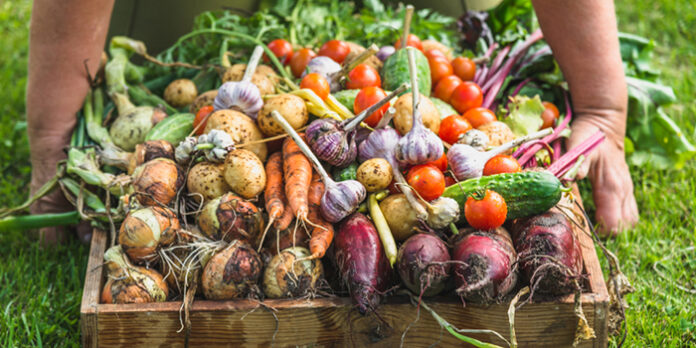Organic farming is a system of agriculture that uses practices that support the long-term health of soil and ecosystems. It relies on techniques such as crop rotation, cover cropping, and composting to build soil fertility and to control pests and weeds. Organic farmers also avoid the use of synthetic fertilizers, pesticides, and herbicides. Around 1.6% of all farmland in the world was organically cultivated as of 2020, covering around 75,000,000 hectares and 190,000,000 acres.
Usage of organic farming
- Agriculture
- Food processing
- Retail
- Restaurants
- Direct marketing
Types of organic farming:
Conventional organic farming, Biodynamic farming, and Permaculture are the most Common Types.
CONVENTIONAL FARMING:
It makes use of both conventional agricultural techniques like crop rotation and cover crops as well as some cutting-edge ones like synthetic fertilizers and insecticides.
BIODYNAMIC FARMING:
This method is based on biodynamic principles, a holistic method of farming that sees the farm as a living organism. Composting, crop rotation, and the use of homeopathic remedies to increase soil fertility and encourage biodiversity.
PERMACULTURE:
This type of organic farming is based on the principles of permaculture, a system of design that seeks to create sustainable human settlements. Permaculture farmers use a variety of techniques to create systems that are productive, resilient, and beneficial to the environment, such as water harvesting, agroforestry, and composting.
PROFITABILITY
In the United States, organic farming has been shown to be 2.7 to 3.8 times more profitable for the farmer than conventional farming. Globally, organic farming is 22–35% more profitable for farmers than conventional methods,
- The profitability of organic agriculture can be attributed to a number of factors.
- organic farmers do not rely on synthetic fertilizer and pesticide inputs, which can be costly.
- Organic foods currently enjoy a price premium over conventionally produced foods, meaning that organic farmers can often get more for their yield.
Benefits of organic farming
- Improved soil health
- Reduced pollution
- Increased biodiversity
- Improved animal welfare
- Healthier food
Regional Analyses:
The Asia Pacific region is the largest market for organic food in the world, with a value of over US$60 billion in 2021. The region is also home to some of the fastest-growing organic farming sectors, with China, India, and Japan leading the way.
China is the largest producer of organic food in the world, with over 2.4 million hectares of organic agricultural land. The Chinese government is promoting organic farming through a variety of policies and regulations, including financial support, technical assistance, and market access. China has announced plans to increase the production of organic food by 50% by 2025. This is part of the government’s efforts to improve food safety and reduce environmental pollution.
India is the second largest producer of organic food in the world, with over 1.3 million hectares of organic agricultural land. The Indian government is also promoting organic farming through a variety of policies and regulations.
According to the 2020 report by the International Federation of Organic Agriculture Movements, Australia is the largest producer of organic farming in the world, with 35.69 million hectares of organic agricultural land. This is followed by Argentina, with 4.07 million hectares, and France, with 2.78 million hectares.
one study used data from the USDA National Agricultural Statistics Service to track the growth of organic farming in the United States from 1992 to 2012. The study found that the number of organic farms in the United States increased by 1,600% during this period, and that the total area of organic land increased by 1,200%.
Recent Development:
India to increase organic farming area to 100 million hectares by 2025: The Indian government has announced plans to increase the area under organic farming to 100 million hectares by 2025. This is a significant increase from the current area of 2.3 million hectares. The government is providing financial support and technical assistance to farmers who want to transition to organic farming. Announced on January 1, 2023.
The UK government has launched a new £20 million fund to support organic farming. The fund will provide grants to farmers who want to transition to organic farming or who want to improve their existing organic practices.
